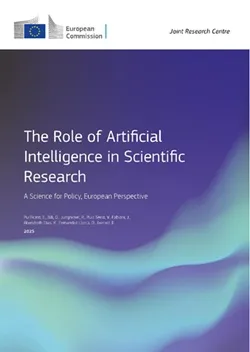-
 Welcome to plumtriA platform for Research & Innovation
Welcome to plumtriA platform for Research & Innovation -
 Looking for Funding?Check out the current open calls
Looking for Funding?Check out the current open calls -
 Register today to start receiving our monthly newsletter
Register today to start receiving our monthly newsletter -
 Looking to partner up?Search our list of registered profiles
Looking to partner up?Search our list of registered profiles -
 You have questions on a particular funding programme?
You have questions on a particular funding programme?
JRC - The Role of Artificial Intelligence in Scientific Research
Image

Artificial Intelligence (AI) is fundamentally transforming the scientific process across all stages, from hypothesis generation and experimental design to data analysis, peer review and dissemination of results. In many research fields, such as the examined protein structure prediction, materials discovery and computational humanities, AI accelerates discovery, fosters interdisciplinary collaboration and enhances reproducibility, while improving access to advanced analytical and computational capabilities. These developments align with the European Union (EU)’s vision to make AI tools and infrastructure more accessible, strengthening research in areas of strategic importance such as climate change, health, and clean technologies. However, this progress introduces new challenges, including concerns about algorithmic bias, the proliferation of hallucinations and fabricated data, and the potential erosion of critical thinking skills. AI Adoption remains uneven across scientific domains, and addressing these risks requires robust governance, transparency and alignment with open-science principles. This report, accompanying the publication of the European Strategy for AI in Science, provide scientific evidence to support policymakers in maximising AI’s benefits for EU’s research excellence, innovation and competitiveness, while ensuring its deployment in science remains ethical, inclusive and aligned with European values.
Read the full report by clicking on the below link.
Information and image source:

plumtri is a platform that facilitates networking and knowledge sharing amongst stakeholders in the Mediterranean, involved in the spheres of research and innovation and serves as a ‘one-stop-shop’ for information on relevant funding opportunities and events.
Contact Us
Address:
Xjenza Malta
Villa Bighi,
Dawret Fra Giovanni Bichi,
Kalkara KKR 1320,
Malta.



